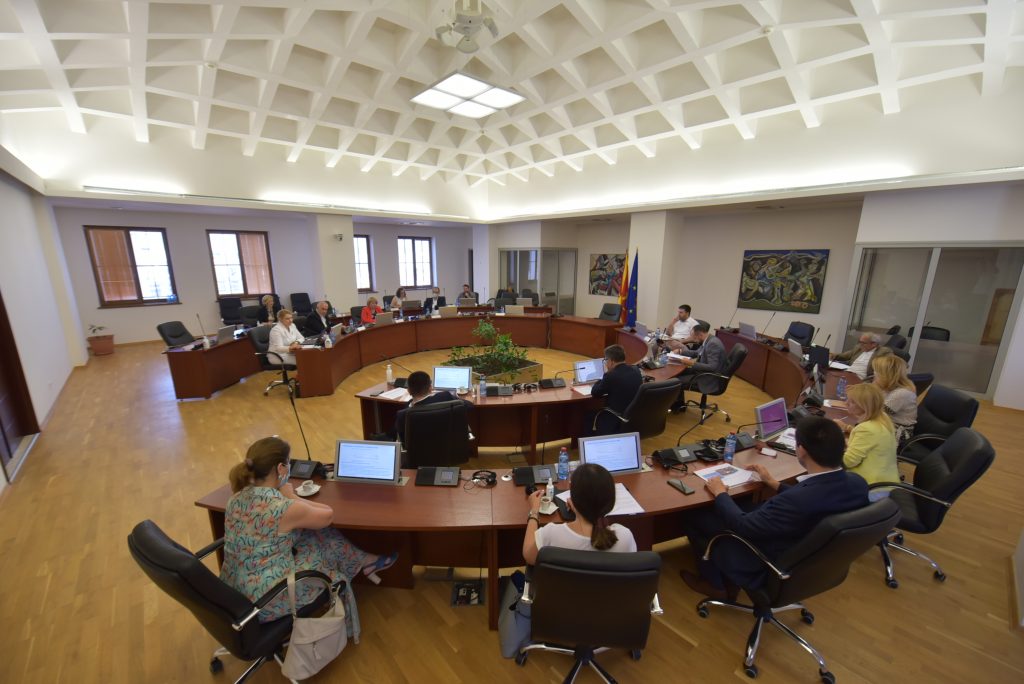8th July 2021, Skopje – Harmonization of customs tariff rates with the ones in the EU will strengthen the competitiveness of the domestic industry, scale up investments by the companies, leading to job creation. This was the main focus at the meeting held at the Ministry of Finance, attended by the Minister of Finance, Fatmir Besimi, Deputy Prime Minister of the Government of the Republic of North Macedonia, Fatmir Bytyqi, Minister of Economy, Kreshnik Bekteshi, Minister of Agriculture, Forestry and Water Economy, Arjanit Hoxha and representatives from the Chamber of Commerce of North Macedonia, the Macedonian Chambers of Commerce, the Chamber of Commerce of North-West Macedonia, MASIT, MATTO, as well as representatives from AmCham North Macedonia.

Harmonization of customs tariff rates is a request by the businessmen for harmonization of certain customs tariff numbers regarding customs tariff rates with the EU customs tariff rates. During the meeting, analysis was presented, covering all submitted requests for amending the customs tariff numbers regarding customs tariff rates, by all chambers of commerce and the effect therefrom on the Macedonian economy. Principles on which the analysis is based and made are safeguarding the domestic production and harmonizing the customs tariff rates with the EU ones, which should contribute to strengthening the competitiveness of the domestic industry, creating more attractive conditions for foreign investors, as well as more intensified inclusion in the global supply chains, i.e. creating added value.
Dialogue and partnership between the Government of the Republic of North Macedonia and the business community are continuously ongoing. During these meetings, all issues are discussed, with the institutions making thorough analysis and undertaking adequate activities thereafter. Propositions of the business community are considered, with the ones aimed at assistance and support being accepted. During the meeting, it was pointed out that the Government is here to create favourable business conditions and environment, along with conditions for development of investments, export, as well as development of the overall economy.

Creating a favourable business environment through systemic redefining of the Customs Tariff, reduction of other parasfical duties and tax relief and postponement of payment of certain public duties was also envisaged in the fifth set of anti-crisis measures, which actually incorporated the businessmen’s requests.
Measures are designed at providing direct support to the economy and companies, and thus directly supporting the citizens by having their living standard and working conditions improved.
















